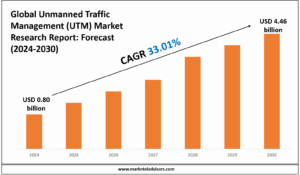
Why Returns Are No Longer a Burden in the Middle East
As online shopping continues to gain momentum across the Middle East, consumer expectations are evolving just as quickly. Shoppers want more than just fast delivery—they expect flexible, transparent return policies that put their experience first. Whether it’s a size issue, a damaged item, or a change of mind, how a business handles returns plays a major role in shaping long-term loyalty.
In this blog, we’ll explore how reverse logistics in the Middle East—particularly in high-growth areas like the UAE—is becoming a strategic advantage for businesses. From improving eCommerce returns to building customer trust and enabling sustainable logistics, we’ll break down the challenges companies face, the benefits of streamlined reverse operations, and how logistics partners are transforming reverse logistics UAE practices to drive long-term success.
Problem Areas: Where Traditional Systems Fall Short
Despite rapid advancements in logistics infrastructure in the Middle East, many businesses still face challenges in managing eCommerce returns. Common problem areas include:
- Complex and delayed returns processes that frustrate customers
- Lack of visibility or transparency in return status
- High costs associated with inefficient reverse flows
- Limited options for product refurbishment or resale, which impacts sustainability
- Disjointed logistics systems that separate forward and reverse operations
These issues don’t just inconvenience customers—they erode brand trust. In an era where loyalty is earned through smooth post-purchase experiences, ignoring reverse logistics is a costly oversight.
Why Reverse Logistics Matters More Than Ever
Efficient reverse logistics in the UAE and broader Middle East is essential. Here’s why:
1. Building Customer Trust
A simple, hassle-free return experience reassures buyers, especially in online shopping environments where they can’t physically inspect products. Transparency and reliability in the returns process directly correlate with higher customer satisfaction and repeat purchases.
2. Strengthening Brand Loyalty in eCommerce
As competition increases, brands must differentiate beyond price. Companies that provide thoughtful, convenient eCommerce returns management stand out, especially among tech-savvy and mobile-first consumers in the region.
3. Enabling a Sustainable Supply Chain
Through smart product refurbishment, repair, and resale, reverse logistics can contribute to a sustainable supply chain. Consumers today are increasingly drawn to brands that reflect eco-conscious values, making sustainability not just ethical—but strategic.
4. Driving Operational Efficiency
Reverse logistics helps businesses recover value from returned goods, better manage inventory, and minimize losses. This feeds into a leaner, more responsive supply chain model.
How Logistics Partners Streamline Returns
As companies look to improve their reverse logistics processes, many are turning to third-party logistics (3PL) providers who specialize in this area. One such company operating in the region is eShipper, a global logistics solutions provider with a strong presence in the UAE. Known for their expertise in fulfillment, shipping, and reverse logistics, eShipper helps businesses simplify their returns process while supporting sustainability and customer trust.
By leveraging local warehouses, smart technology, and a connected logistics network, partners like eShipper enable brands to offer a fast, transparent, and cost-effective returns experience. The result? Happier customers, stronger loyalty, and a logistics operation that supports long-term growth.
Conclusion: Reverse Logistics as a Strategic Advantage
Reverse logistics isn’t just a backend operation—it’s a customer-facing service that plays a crucial role in trust-building. As the logistics infrastructure in the Middle East matures and eCommerce grows, businesses must embrace reverse logistics as a competitive edge.
For companies operating in the UAE and surrounding regions, now is the time to treat returns not as a pain point—but as a chance to build lasting relationships. With the right processes and partners in place, reverse logistics becomes a powerful engine for both customer satisfaction and sustainable success.





